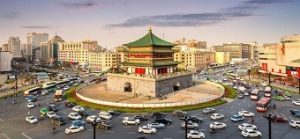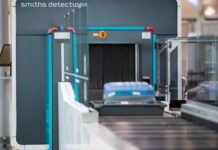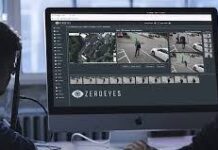
Traffic continues to grow in every major city. But how do people beat congestion in these restricted urban spaces? In China’s ancient-walled city of Xi’an, they’re adopting an intelligent traffic management system based on Hikvision technology – and boosting traffic flow while reducing journey time. The Chinese city of Xi’an, known as Chang’an in ancient times, was the centre of ancient oriental civilisation.
Thirteen dynasties spanning Chinese history have chosen Xi’an as their capital. Today, Xi’an is not simply a part of history: it’s a high-tech hub, renowned across China for its scientific research and education, manufacturing, technology, and transportation. In spite of being a modern hub, Xi’an still retains its ‘checkerboard’ layout from the Tang Dynasty, complete with its border of tall and ancient walls.
Nevertheless, while economic growth has enabled the city to develop, the walls place great restrictions on the city’s daily movement – especially to its burgeoning traffic. Vehicles can only enter and exit through the city gates, but with some three million vehicles in the city, the limited number of entrances was beginning to cause serious congestion. What’s more, there are also many ancient ruins in the city, which were further limiting the development of the urban area. Plus, as of 2018, the city was home to over 10 million people, while the number of construction projects was steadily increasing. Managing a growing city while protecting its history presented a serious challenge to Xi’an. So, to address this, Xi’an Urban Traffic Administration turned to Hikvision and its intelligent cameras. “Xi’an’s city walls make it impossible to increase the size of the urban area. So, it was only through technology that we could allow the modern city to grow and develop,” says Lihu Ma, the Project Manager from Hikvision. “A core part of the Hikvision solution involves our AI-powered video technology.”
The Xi’an traffic police worked with experts from Hikvision, as well as urban planning experts, internet service providers and other technology companies, to design and implement an intelligent traffic management system. The construction of this system fully utilises Hikvision’s core advantages in urban transportation intelligence, employing AI-powered video to create a powerful traffic sensing system.
“Effectively, we are building a bridge between an intelligent digital world and the physical urban transportation network in Xi’an,” explains Lihu. The intelligent traffic management system analyses comprehensive and detailed data about the movement of traffic through the urban Xi’an area, and uses the insight gathered to make the flow of traffic more smoothly in three key ways:
Comprehensive road traffic violation monitoring
Xi’an traffic police have installed Hikvision’s Checkpoint Capture Cameras and Intersection Violation Capture Units as part of a monitoring system that can detect illegal vehicle behaviour at intersections. These full view ultra-high zoom cameras record vehicles making illegal maneuvers – such as running red lights, making banned turns and illegal lane changes – in real time. What’s more, the latest sound monitoring equipment is being used to detect illegal use of car horns in banned areas.
Visual integrated command and dispatching platform
Using real-time video streams from Hikvision Traffic Flow Capture Cameras, a number of road condition perception technologies, plus intelligent mobile applications, Xi’an traffic police has created a visual command and control centre, coupled with an intelligent police dispatch system. All data is aggregated and dynamically displayed on a large screen in the command and control centre. In the event of a traffic incident, the system generates dispatch recommendations intelligently, according to the location and distribution of traffic police officers throughout the city. Those closest to an incident receive an automated message to their mobile terminals, enabling them to arrive at the scene quickly.
More importantly, the intelligent traffic management system uses advanced machine learning capabilities to gain insight into typical congestion patterns, in order to actively identify potential traffic events before they happen. By analysing large volumes of road condition data and information from Hikvision’s intelligent video cameras, the system can predict which intersections are most prone to congestion and when, enabling traffic police to put evasive measures in place before serious issues arise.
Improved vehicle flow capacity with intelligent signal control
The Xi’an traffic management team also employs congestion management practices to ease the flow of traffic, largely through the optimisation of signal timing. Using Hikvision intelligent video cameras coupled with augmented reality (AR) technology, the intelligent traffic management system analyses traffic flow data and dynamically alters the timing of signal lights accordingly.
It will monitor traffic flow, queue length and average driving speed in all directions of intersections in real-time, automatically adjusting signal timing to optimise the flow of vehicles. The Xi’an traffic management system has now been trained with a wealth of traffic data, including Hikvision video, enabling it to build multiple intelligent algorithms for managing congestion in the city.
First of all, map-based congestion reports suggest that Xi’an’s congestion rankings have improved significantly. In fact, compared with the test results of pilot roads before the system went live, intelligent signal control alone has increased the throughput of traffic by 10%, while the average vehicle journey time is reduced by about 12%. What’s more, driver behaviour is improving, and drivers are becoming more compliant with the rules of the road.
Traffic law enforcement data reveals that traffic offences are generally decreasing, with traffic violations dropping by some 30% in one short-term observation. Additionally, thanks to the proactive traffic incident warning function, the incident detection rate has also increased by more than 30% compared to the traditional model. With the continuous optimisation of the system algorithm, plus ongoing installation of monitoring equipment, the accuracy of this identification will only improve. In the process of urbanisation, tackling congestion is not only about improving the flow of the transportation network: it’s also basic governance for building a smart city.











